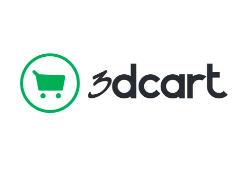The Best eCommerce Platform – Find Customers Globally
Written By Dragomir Simovic
Updated: February 6, 2024
Online website builders give everyone the ability to set up an online business easily and without any knowledge of web development and the coding environment. Whether you’re expanding your brick-and-mortar operation to the internet or you wish to create an online shop to support your hobby or start a new business while providing value to your visitors, eCommerce platforms are an easy way to get set up. You’ll be able to quickly set up a point of sale for your customers, manage your online marketing through integrated content management systems (CMS) and hopefully see growth and profit as a result of reaching out to new premium markets. Our comprehensive reviews will introduce you to some great companies which will help you choose the best eCommerce platform for you. Take a look at our selection and see which one works best for you.
Show more...
1. NetSuite
Ease of Use
excellent
Features
excellent
Price
good
- ⦿Suitable for B2B and B2C companies
- ⦿Drag and drop site management tools
- ⦿SEO integrations
NetSuite's cloud hosted eCommerce solution, SuiteCommerce, lets merchants create and deliver customizable and engaging online shopping experiences, regardless of whether they operate according to a B2B or B2C model. With this cloud-based software solution, you'll be able to connect your online store with all the other aspects of your business's operation on a single platform. SuiteCommerce comes with automatic gold tier upgrades, the ability to support sites for multiple countries, brands, languages and currencies, and a wide range of advanced design and marketing features.
2. BigCommerce
Ease of use
average
SEO
fair
Features
excellent
- ⦿Multi-channel selling
- ⦿Feature-rich platform
- ⦿24/7 customer support
BigCommerce has a rich variety of features for creating and managing an eCommerce site. The unlimited storage and number of products that users can upload make this online store website builder one of the best on the market. BigCommerce allows you to sell on multiple channels and increase your online presence while streamlining the whole process by using the Channel Manager feature.
3. 3dcart
Ease of Use
good
Features
excellent
Price
excellent
- ⦿Video tutorials
- ⦿Landing pages
- ⦿Product guides
3dcart began its eCommerce journey back in 1997. This best eCommerce platform for small business lets you create your online shop from scratch. Even though this eCommerce website builder might not be as intuitive as users want it to be, numerous comprehensive video tutorials will lead you through the process. What's great about 3dcart is that you can create landing pages that can easily generate leads for you. Adding products is extremely easy - you can just upload a CSV list if you have a lot of them. Thanks to Zapier automation, your shop can be exceptionally efficient with low maintenance requirements from your end. The lowest price starts at $17.10 if you decide to subscribe annually which pretty much fits into anyone's business budget.
4. Shopify
Ease of use
excellent
SEO
average
Features
excellent
- ⦿Wide selection of industry-specific templates
- ⦿Increased website visibility
- ⦿Digital selling options
Shopify is a website builder with over 800,000 users worldwide. Its powerful selling tools help it stand out from the rest of the competition. This is the best website eCommerce builder for users who want a professional online store up and running in just a few days. It's also ideal for those who are not experienced in HTML and CSS, and aren't interested in working with a website developer. Moreover, the site's interface is navigable and loaded with a variety of high quality templates that are easy to customize, helping you take your offline business online, or start a new one.
5. Wix
Ease of use
excellent
SEO
excellent
Features
average
- ⦿Fast setup process
- ⦿Stunning themes and templates
- ⦿Affordable packages with unlimited bandwidth
Wix is a great intuitive platform with lots of resources for designing effective websites and the best online stores. The dashboard is equipped with a robust set of quality tools for uploading and managing both physical and digital goods. If you are looking for a free online store builder, Wix will offer you hundreds of stunning themes and unlimited pages for creating an online store for all your content marketing needs, with minimal time investment. In addition to the free version, the platform offers several pricing plans that include strong digital marketing and management tools. Wix even offers more advanced features like shipping discounts, priority customer support, automated sales tax as well as a built-in customer loyalty program, to name a few.
6. Squarespace
Ease of use
excellent
SEO
average
Features
average
- ⦿Individual product customization
- ⦿Social media integrations
- ⦿Appointment scheduling
Another platform on our list of the best online website builder solutions is Squarespace. The company specializes in providing designed templates for creating online stores and facilitates the sale of an unlimited number of products and a variety of different services.
What Is the Best eCommerce Platform?

If you’re new to the whole concept of eCommerce websites, you might not know exactly what features you’ll need for a fully functional online store. Aside from not having to worry about the technicalities like bug fixes, hosting, caching, system backups, general backend and server maintenance etc., here are a couple of features you should keep a lookout for:
Inventory management – Most eCommerce platforms will have some type of an inventory management system to help you keep track of your products, orders, stock levels, or any problems that might come up without requiring extensive spreadsheet management, filing and documentation. Some platforms come with bonus functions that allow you to automate the process in any way you want and receive customizable alerts when necessary.
Multi-channel integration – You’ll probably see a website that claims to be the best multi channel eCommerce platform. What does that mean? It means that you can sell your products on different channels with a unified inventory that is constantly synchronized. Although this feature could be considered basic and unimpressive, it is essential for the majority of the best online stores.
Discount/gift codes – It is important to provide your customers with incentives to buy a product and discount/gift codes are the best way to do it. It can be a seasonal promotion, a discount tied to an event or something else entirely. These codes give you a lot of creative freedom.
Abandoned cart – This is a very popular feature that’s bound to be a part of the best webstore platform’s offer. Essentially, this feature saves any unfinished purchases and (automatically) sends reminder emails to customers. Apparently, the abandoned cart feature can drastically improve your sales.
Account creation – This feature works similarly to the abandoned cart feature. Users who make a purchase can be prompted to make an account and, that way, become a loyal customer of the store.
Blog section – Including a blog in your online store has a number of benefits. First of all, it is a great way to reach your audience. You can let them know about any news, product releases or promotions you have going on. You will find a blog section in any top online store builder because it also helps you improve your SEO – the visibility of your website on a search engine such as Google.
Landing pages – Creating a landing page is another great way to generate leads. Instead of making an entire website into a promotion for a certain event, you can simply create a landing page and show the special offer only to the users who are supposed to see it.
Shipping options – You might expect to find limited shipping options for an eCommerce website and you would be right. However, there are many additional elements that platforms can include to improve this process. The best platform to sell online will provide you with special deals with shipping companies, shipping calculators, custom tags, and much more, offering options such as drop shipping for your online business.
Our Methodology
Our search for the best eCommerce website builder starts off with a reliable methodology. We’ve compiled a list of important factors we take into consideration when writing our reviews. They are:
Interface
The first order of the day is the interface. We try to find out if the software is intuitive and easy to use and we check if it has any bugs. If we’re after more control and are willing to put hundreds of hours into learning to code or pay a developer, platforms such as WordPress start becoming a viable option. Considering that we’re evaluating website-builders, we expect them to be user-friendly and, more importantly, beginner-friendly. There’s no point in having a capable eCommerce platform if you need to spend hours getting to know the basics. We appreciate a clean and simple dashboard that doesn’t overwhelm the user or offer unnecessary information.
Visuals
The best eCommerce platform needs to offer outstanding visuals in order to compete in today’s demanding market. We expect templates to be well-designed, UX focused, customizable, and responsive. So many platforms today use AI to come up with a fast website solution, but does it really live up to the custom-designed standards? Sure, speed is important but not if it comes at the expense of the site’s visual appeal. Afterall, this is an online store we’re talking about. The visuals need to attract the customers.
eCommerce Features
Since our goal is to evaluate eCommerce platforms and find the best one, we’ll be focusing mainly on eCommerce-specific features. Multi-channel selling is a standard feature, as well as inventory management, but we need to go way beyond that. Can you add/automate apps? What payment processing methods will you be able to offer your buyers? Does the platform support payments through services such as PayPal? Is there an abandoned cart feature? Can loyal customers create their own accounts and keep track of their purchases? Can you add customer support and loyalty programs? Does the platform support access for multiple users? Can you manage sales tax through the platform as well as any other taxes that may be applicable for the sale? Features are the main focal point and you should keep in mind if your platform of choice will be able to support your business venture as you continue to grow and as your needs get more complex.
Apps & Extensions
Apps are a great way to add more functionality to an eCommerce platform. They can deal with payments, orders, or even security that is essential when you’re dealing with money transfers. Of course, it is not necessary for eCommerce website builders to have their own store if they allow third-party apps and extensions. The only problem with third-party software is that the company can’t guarantee their safety or functionality.
Price
You can have the best platform in the world but if you can’t afford it, what’s the point? We’ll always present you with the cheapest subscription plan to give you a vague idea but you’ll have to check the company’s website for the full pricing. Keep in mind that the most basic website building plans usually don’t allow store integration. The best platform for eCommerce websites costs slightly more.
THE BEST ECOMMERCE PLATFORM SOLUTIONS
- NetSuite
- BigCommerce
- 3Dcart
- Shopify
- Wix

Full Reviews
NetSuite
Ease of Use
excellent
Features
excellent
Price
good
- ⦿Supports multiple channels, locations, and currencies
- ⦿Numerous third-party integrations
- ⦿Automatic software updates
Operating in the commerce industry since 1998, NetSuite is one of the most widely used enterprise resource planning (ERP) solutions and sits among the top-rated eCommerce site builders. Developed by Oracle, this cloud hosted platform lets its users streamline business management procedures by integrating and automating key functional areas such as finance and accounting, billing, inventory management, order management, CRM, HR analytics and performance management, eCommerce, and email marketing.
NetSuite caters to companies of all sizes and industries. No matter whether you run a large B2B software company or a small, family-owned apparel store, this platform’s solutions will help you reduce IT costs and do away with any operational inefficiencies. That way you’ll be able to concentrate on making revenue-generating decisions instead of worrying about back-office procedures.
For the purpose of this review, we’ll focus on SuiteCommerce, NetSuite’s eCommerce product. As one of the top eCommerce software solutions, SuiteCommerce helps you link every aspect of your multi-location, multi-channel retail business by connecting in-store and eCommerce POS to inventory, order management, financials, marketing, and customer service.
Not only does SuiteCommerce work perfectly as a part of the NetSuite ERP platform, but it also performs splendidly as a SaaS eCommerce solution in its own right. Given its rich set of features and customization options, it’s a great choice for companies dealing with both business (B2B) and individual (B2C) customers. Moreover, the platform offers support for multiple languages, countries, and currencies.
As one of the best eCommerce platform solutions, SuiteCommerce understands that merchandising and your brand is one of the most important aspects of your business, so it lets you reflect that by offering rich design capabilities. Thanks to the huge library of pre-built design themes and extensions, along with a long list of additional features such as site search powered by Elastic, faceted navigation, and the ability to save shopping carts and create lists, building your eCommerce store has never been more enjoyable.
Users can make the most of the drag-and-drop tools to customize predefined layouts, edit pages, and manage content. Thanks to SuiteCommerce’s scheduling capabilities, you can also make changes to your site and save them for future deployments instead of publishing them straight away.
Our eCommerce software comparison has shown that SuiteCommerce features some of the most elaborate SEO and marketing functionalities. To increase click-through rates, you can make the most of SEO-friendly URL links, customizable article formatting (H1, title, meta tags), and the Schema.org markup. The platform also lets you influence the buyer decision process and present related products, up-sells, and cross-sells all based on popular merchant-driven rules such as browsing behavior. With the Bronto Marketing Platform integration, you can drive sales by setting up cart abandonment, popup signup, and similar email- and site-based campaigns.
One of the traits of the best eCommerce-builder platforms is a wide range of accepted payment options. SuiteCommerce supports credit cards, invoicing, gift cards, and promo codes. Your shoppers can make purchases as guest users or choose to create an account. No matter which option the users decide to go for, their shopping experience will be secured with HTTPS support and multilevel fraud protection from start to finish. As far as shipping goes, NetSuite’s eCommerce solution integrates seamlessly with companies that provide shipping label printing and tracking information.
This eCommerce website builder reviews all the information that it processes and lets you create reports and gain valuable insights into your company’s standings.
Unlike its competition, NetSuite doesn’t offer a list of pre-set pricing packages. Given that the cost depends on the exact eCommerce features and additional services you decide to go for, along with the number of users, we suggest you sign up for a product tour and request a quote from the provider.
Show more...
BigCommerce
Ease of use
average
SEO
fair
Features
excellent
- ⦿Free SSL certificate
- ⦿No transaction fees
- ⦿Unlimited number of users
Ease of Use
One of the reasons why BigCommerce is on our best online storefront builder list is the platform’s usability. Like the majority of modern platforms, BigCommerce is completely cloud-based, meaning that you don’t need to install anything on your desktop device. Moreover, this platform is scalable, so you don’t need to worry about how many products you can store or what to do when your business expands. BigCommerce can support anything from startups to large corporations.
However beginners might find the platform overwhelming since it comes with a robust set of built-in features
Pricing Plans and Payment Methods
Those looking for an online store builder for free or a cheap platform are advised to stay clear of BigCommerce services. While this vendor offers a free trial of 15 days, any serious services will require additional packages. The Standard package costs $29.95 per month. You can upload as many products as you want and have an unlimited number of staff accounts. However, the plan does not offer some of the basic features like abandoned carts, marketing tools and sales features. These features come with the more comprehensive Plus Plan that costs $79.95.
But those that choose this web store builder won’t have to worry about storage. Meanwhile, all advanced pricing plans include a wide range of marketing tools and channels that you can connect with. Various payment methods are available, and you can sell products globally by integrating with numerous payment providers.
Designs and Templates
BigCommerce is loaded with countless industry-tailored templates, automatically responsive to all devices. Still, we need to emphasize that there are two types of templates – free and paid. You can find stunning free themes in the BigCommerce library, and you can change fonts or colors, insert photos and text to personalize your eCommerce store.
SEO and Marketing Tools
An eCommerce SEO strategy is something that you certainly need to have in mind when setting up your online store. The best online eCommerce website builder is there not only to manage your inventory or help you sell through social media platforms but also to help you rank on Google. BigCommerce can help you to optimize your eCommerce website if you utilize some of the apps offered on the website. Unlike Wix, BigCommerce does not offer personalized SEO plans. Rather, you can read blogs about eCommerce SEO on its website.
Sales Features
This eCommerce website maker enables smooth integration with many sales channels including eBay, Amazon, Instagram, Facebook and Pinterest.
Managing multiple sales channels has never been easier. The BigCommerce Channel Manager is a useful feature for tracking and managing product sales whether through the marketplace, social media channels or point of sale. The automatic syncing is a perfect way to avoid mistakes commonly made by manual tracking and save time by streamlining sales.
Show more...
3dcart
Ease of Use
good
Features
excellent
Price
excellent
- ⦿CSV upload
- ⦿Customizable stock alerts
- ⦿Zapier automation
Founded in 1997, 3dcart is a veteran in the world of eCommerce platforms with more than two decades of experience in the business. Today, they offer premium website solutions for shops of all sizes. Here is a short overview of their platform.
People who decide to open an online shop usually don’t know much about programming. That’s why it’s important for the best web store builder to have an intuitive and easy-to-grasp interface with modern graphic design options. Although eCommerce software by 3dcart doesn’t require coding, users often complain about its demanding learning curve. Thankfully, the website provides a catalog of comprehensive video tutorials and guides to help you get started. The library contains dozens of free and premium templates with high-quality responsive designs. The themes are designed in such a way that the most important elements load first. This is beneficial not only for the customer experience, but also for SEO.
You can add as many pages as you want to your templates, including the extremely lucrative landing pages and product guides. The best website platform for eCommerce makes it easy to add new products with absolutely no coding involved. If you have a lot of them organized in a table, you can simply upload the entire CSV file. The platform will do the job for you. The inventory control feature is a built-in system that lets you track stock levels and manage your products. The fully customizable stock alerts will warn you when the supplies are running low or if you’re fresh out of stock. You can also create a waiting list to make sure you don’t lose any of those eager customers.
Some of the features that make 3dcart the best platform for online stores include Zapier automation, Abandoned Cart Saver, and two-factor authentication. Thanks to the 3dcart’s partnership with Zapier, you can connect and automate as many apps as you want, giving you a much more efficient online experience. With a generous selection of over 1,000 apps, it’s only a matter of choosing the right ones. The Abandoned Cart Saver feature makes sure unfinished purchases don’t get lost, so you can set up the email campaign to get those buyers back. Finally, 3dcart also provides you with a two-factor authentication system to ensure your security never gets compromised.
Like many other top eCommerce sites, this one also provides you with multi-channel synchronization. Your entire inventory is updated across all channels when there’s a change to the stock levels. In order to boost sales, you can turn on the single-page checkout option. It dramatically increases conversion rates. With over 100 payment gateways at their disposal, your visitors will easily find their preferred method. Since every shop you create is in compliance with PCI standards, there will be no security issues.
There are no transaction fees or order limits regardless of the subscription plan you choose. The cheapest way to gain access to 3dcart’s online store platforms will cost you $17.10 a month, if you decide to pay annually. It is a great option for businesses that are just starting out and don’t expect to go over the $50,000 limit. The main difference between the plans, besides the sales limit is the amount of features you get. The costlier the plan, the more features you get to improve your online presence.
Show more...
Shopify
Ease of use
excellent
SEO
average
Features
excellent
- ⦿SEO-friendly reviews
- ⦿On-the-go editing
- ⦿Discount codes
Ease of Use
Shopify is undoubtedly one of the best eCommerce platform solutions when it comes to the unique set of tools that it offers. Clients choose Shopify because it is extremely effective and easy to use. You don’t need to be tech-savvy to manage the platform, you don’t need any add-on and you don’t need a web developer. In addition, customer support is available round-the-clock to help you during the set-up process. If you decide to use this platform, your online store will be ready for a quick launch in just a matter of days.
Pricing Plans and Payment Methods
Shopify offers several pricing plans tailored to different budgets and needs. These include Shopify Lite, Basic Shopify, Shopify, Advanced Shopify, and Shopify Plus. The price of the platform’s services ranges between $9 per month and $299 per month.
Generally, plans include basic features for creating and managing online stores like an unlimited list of products, SSL certificate, discount codes and the Shopify POS app.
One of the things that every user should know about this eCommerce website builder is that it takes a bigger cut if you don’t use Shopify Payments for payment processing. These transaction fees vary from 0.5% to 2% depending on the pricing package.
Shopify offers a free trial for two weeks. During this period, your credit card details are not required. Moreover, the platform has terrific discounts for upfront payments – a 10% discount for annual plans and 20% for biennial plans.
Designs and Templates
Shopify comes with more than 70 stunning themes and lots of tools for customization. The themes are responsive to all devices, so you don’t need to worry about how your website comes off on a smartphone or iPhone screen.
From simple themes that highlight the products to the stylish ones for more creative individuals, the Simplify gallery is the right place for all types of eCommerce websites. It’s safe to say that this is the best eCommerce platform for a wide range of industries including photography, fashion, sports and toys. You can choose a theme and tailor it to the needs of your business by adding photos, rewriting texts and inserting new pages. These tools are all the more useful if you have a knack for design. You can create an online store from scratch by using colors, fonts and different styles.
SEO and Marketing Tools
SEO capabilities are one of the most important things to keep in mind when purchasing eCommerce tools. These capabilities improve the ranking of your website on Google and increase sales. It also allows clients to leave SEO-friendly reviews of products directly on your website.
Shopify is well integrated with numerous social media platforms and apps, helping facilitate likes and shares, which is another important factor in online commerce. These include Instagram, Pinterest, Facebook, and Tumblr. The apps help users advertise products and improve sales. For example, this online store builder helps you integrate your eCommerce website with Facebook Store and sell products.
Sales Features
Shopify comes with all the basic features that help users manage sales including shipping, dropshipping, reporting tools and email marketing. But the platform’s key feature is digital selling. The majority of today’s businesses rely on selling digital assets or services. The first thing all business owners should think about when buying a website builder is its storage capacity. Luckily, Shopify offers excellent packages for storing large digital products.
SSL Security, 24/7 technical support, and backup options are also included in Shopify packages.
Overall, Shopify is the best website builder for creating an eCommerce store from scratch.
Show more...
Wix
Ease of use
excellent
SEO
excellent
Features
average
- ⦿Personalized SEO plan
- ⦿Advanced marketing features
- ⦿Affordable packages
Ease of Use
Wix made our best website builder for eCommerce list because of its robust set of tools for creating and managing web stores as well as its user-friendly interface.
In 2006, Wix launched a platform for building websites that quickly became popular around the globe. Thousands of organizations, companies and individuals rely on their services.
Moreover, the platform doesn’t require you to have any design experience in order to create, launch and edit your online store.
Pricing Plans and Payment Methods
If you are looking for the best free eCommerce website builder , then Wix might be a great choice. This plan includes up to 100 templates, an unlimited number of pages and free web hosting. Users can sign up for the easy-to-upgrade free package or purchase extra features.
The platform also offers several pricing plans for both website and online store building. Wix eCommerce prices for building online stores start at $17 per month. This is a Business Basic package that comes with online payments, 20GB storage, unlimited bandwidth and no commission.
Affordable packages are just one of the features that place Wix among the top website builders. One of the customer favorites, Grow Business Plan, offers up to 35 GB storage, all basic features like free web domain for one year, Google Analytics and lots of additional features for the extra charge.
Designs and Templates
With more than 500 designed themes, built-in styles and lots of features for customization, Wix is a great choice when it comes to building storefronts. You can browse through stunning Wix industry-specific templates and pick the one that is best for your business. With the drag-and-drop feature, you can move texts, pictures or any section in order to personalize your online store.
SEO and Marketing Tools
Once you set up your eCommerce website, you can start managing the Wix online store by using different tools. The dashboard is highly functional, equipped with features that allow you to track your sales or write a blog if you require one. Moreover, you can conduct surveys and polls to collect data, which makes Wix one of the most functional website makers.
Wix email marketing is also widely used among clients since it provides predefined email templates and themes.
One of the more phenomenal features is Wix SEO Wiz, which allows users to increase their website visibility on Google. The user can add details about their business, write keywords that describe it and analyze them. At the same time, you will get a fully personalized SEO plan for managing your site that will help you rank better on Google.
Sales Features
With the Wix website maker, you can sell both digital and physical products. In our Wix eCommerce review, we’ve focused on the most interesting and useful tools that come with the platform. One of those is Facebook Pixel that you can connect with Wix Stores to improve your advertising. You can follow information related to your products, including details on when your product is viewed or when a site visitor adds the product to the Wix shopping cart. Wix also offers more advanced features like automated sales tax, shipping discounts, priority customer support as well as a built-in customer loyalty program.
Show more...
Squarespace
Ease of use
excellent
SEO
average
Features
average
- ⦿Shipping calculator
- ⦿Advanced tax tools
- ⦿Stellar customer support
Ease of Use
The first step in creating a Squarespace eCommerce website involves selecting the product types you want to sell. That’s followed by choosing one of the stunning templates and using the eCommerce site builder to customize it and add products. A toolbar on the left side of the dashboard allows you to choose the icons for adding pages, products, folders or albums. You can use any of these options to personalize your web store and create a unique brand.
Designs and Templates
Thanks to its designed templates, Squarespace is undoubtedly one of the most popular platforms for building an eCommerce website. It boasts an impressive library of templates designed for different industries. Once you pick the right one for your online store, you can start organizing and managing products. There are numerous features that increase the visibility of your products. You can divide them into categories, use titles and tags or add descriptions. The zoom mode is available for images and videos too.
Moreover, all the available themes work on mobile devices making it possible to track sales at all times.
Pricing Plans and Payment Methods
A number of attractive pricing plans solidified Squarespace’s place as the best online website builder. The starting plan costs $16 per month. The offer includes free domain, SSL protection, unlimited storage, and a mobile-friendly website solution. However, this plan is lacking some of the basic selling features like the option to sell an unlimited number of products. To get a more comprehensive plan with basic features like Squarespace shopping cart recovery, you will need to upgrade to the Advanced Commerce plan. The price for this plan is $46 per month.
SEO and Marketing Tools
Squarespace is an online eCommerce website designer equipped with great SEO and blogging tools. You can check how your eCommerce store ranks on Google or see what modifications are required to optimize your web pages and increase the visibility of your business. If you want to boost your business, basic website metrics are also available. For example, you can track how many people visited your website or which products are viewed the most.
One of the surprising aspects of Squarespace is the lack of basic marketing tools. These are not included in any of the plans except the most expensive one. If you want to customize gift cards or abandoned cart recovery, you need to subscribe to the Commerce plan.
Sales Features
Squarespace is the best platform to build a website or engage in online Commerce. The platform allows you to sell both physical goods and digital items, including books, images, or podcasts. You can sell an unlimited number of products via social media channels or the POS system. However, this platform is also good for freelancers who offer different services.
Among the platform’s assets are tools that allow you to schedule appointments by using calendars or online bookings. You can use the maps to locate your business and help clients find you faster.
Show more...










